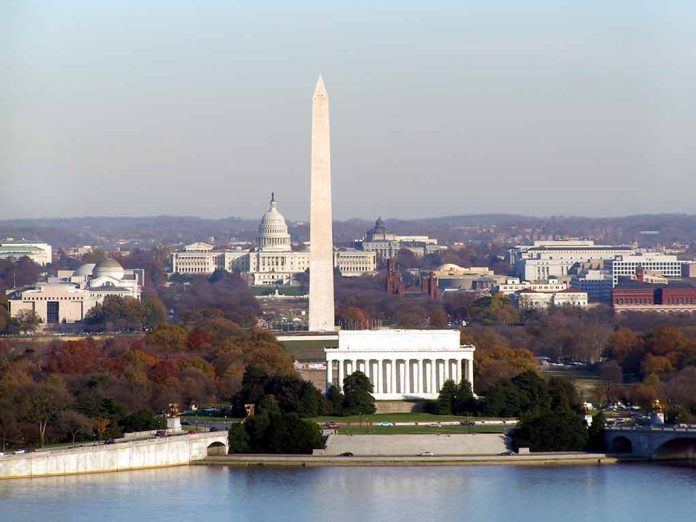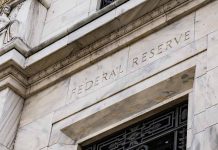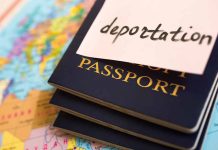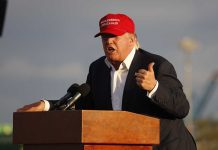
President Donald Trump calls for federal control of Washington, D.C., citing crime and homelessness concerns.
Top Takeaways
- Trump advocates for federal government takeover of Washington, D.C. governance
- Rising crime rates and homelessness in D.C. cited as primary reasons for the proposal
- The move aligns with Republican efforts to reduce D.C.’s autonomy
- Trump emphasizes the need to maintain the capital’s aesthetic appeal
- Proposal contradicts efforts by some lawmakers to pursue D.C. statehood
Trump’s Call for Federal Control
President Donald Trump has voiced support for placing Washington, D.C. under direct federal control, aligning with ongoing Republican efforts to curtail the district’s autonomy. Trump’s proposal comes amid concerns over rising crime rates and visible homelessness in the nation’s capital, issues he believes are tarnishing the city’s image and compromising public safety.
“I think we should take over Washington, D.C. — make it safe,” Trump stated aboard Air Force One. He added, “I think that we should govern District of Columbia.” This declaration underscores his belief that federal intervention is a necessity.
President Donald Trump on Wednesday threw his support behind congressional efforts for a federal takeover of the nation’s capital, saying he approves putting the District of Columbia back under direct federal control. https://t.co/uRhC6rgvzh
— DC News Now (@DCNewsNow) February 20, 2025
Crime and Homelessness: Key Concerns
The president highlighted specific issues plaguing the District, particularly focusing on crime rates and the visible presence of homelessness. Trump expressed dismay at the sight of tents on public spaces, stating, “Too much crime, too many tents on the lawns — these magnificent lawns.” He emphasized the negative impact this has on the city’s aesthetic appeal, especially when hosting foreign dignitaries.
Trump’s concerns extend beyond aesthetics to the core issue of public safety. He believes that federal control would enable a more robust approach to law enforcement and urban management, potentially reversing the perceived decline in the city’s safety and appearance.
Republican Push for Reduced Autonomy
Trump’s proposal aligns with broader Republican efforts to reduce Washington, D.C.’s autonomy. Since 1973, the District has operated under a home rule system, allowing for local governance but still subject to congressional oversight. Some Republican lawmakers are now advocating for a return to more direct federal control.
“The corruption, crime, and incompetence of the D.C. government has been an embarrassment to our nation’s capital for decades. It is long past time that Congress restored the honor and integrity of George Washington to the beautiful city which bears his name,” said Senator Mike Lee.
Senator Lee and Representative Andy Ogles have introduced legislation aimed at repealing home rule, citing governance failures and corruption as justifications. This move, coupled with Trump’s endorsement of federal control, signals a concerted effort within the Republican party to reshape D.C.’s governance structure.
Contrasting Views on D.C.’s Future
While Trump and some Republicans push for increased federal oversight, a faction of lawmakers, including Washington Mayor Muriel Bowser, continue to advocate for D.C. statehood. This proposal, which would grant the District full representation and local control, stands in stark contrast to the federal takeover agenda.
The debate over Washington, D.C.’s governance highlights the complex relationship between local autonomy and federal oversight in the nation’s capital. As discussions continue, the future of D.C.’s governance remains a contentious issue, with significant implications for its residents and the country as a whole.






















